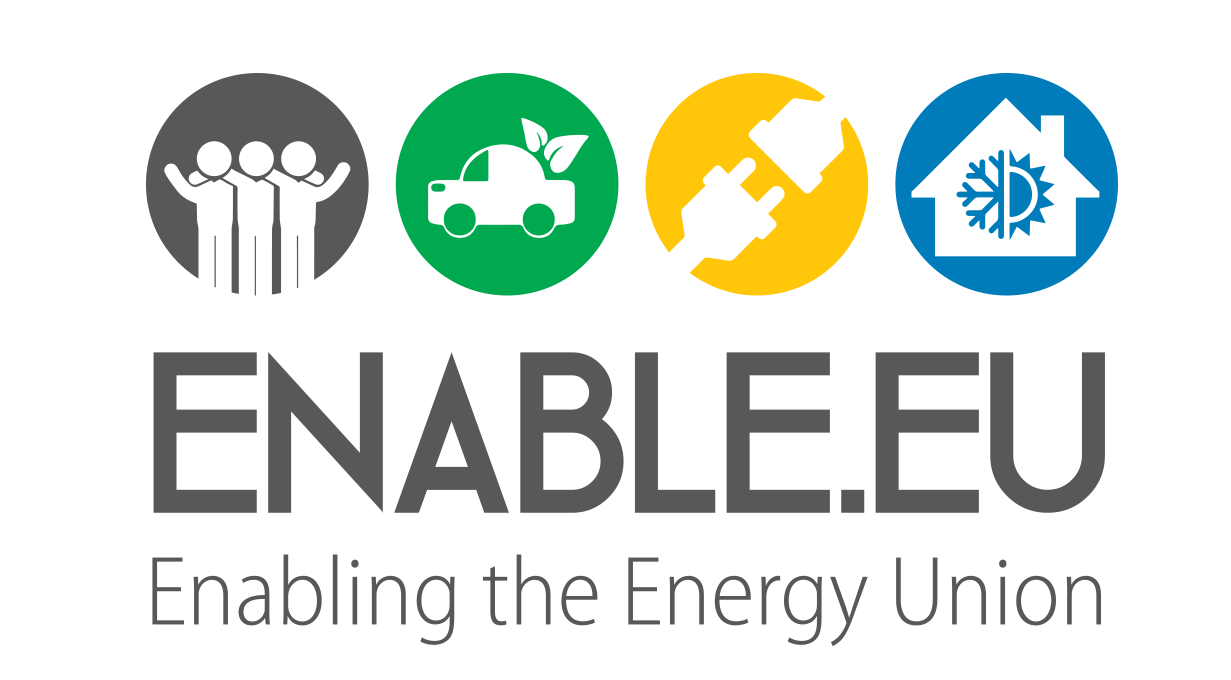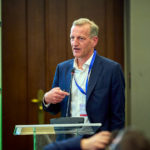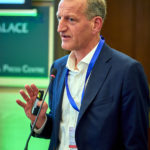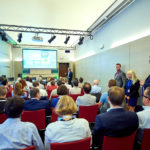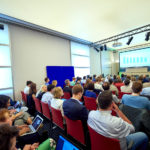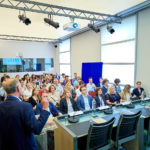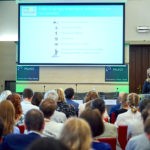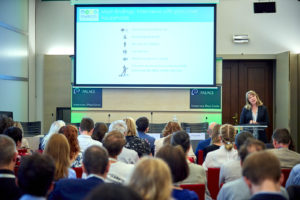
Getting consumers on board is essential in shaping Europe’s energy future. However, despite a range of research and policy initiatives, there is a lack of understanding of the underlying factors that drive consumer choices and of the effective solutions and tools that increase their participation in the energy system.
This is why ENABLE.EU, ESMIG, the Jacques Delors Institute and Geonardo teamed up during the EU Sustainable Energy Week 2019 to shed new light on consumer motivations, engagement and learning patterns, challenge existing thinking and provide real examples that can help decision-makers in their mission of reaching ambitious energy efficiency targets.
The first part of the session focused on presenting three different initiatives that aim at understanding and changing consumer behaviour in energy consumption:
1) Patrick Caiger-Smith, CEO at geo and Chair of ESMIG’s Consumer Energy Management group, presented the most authoritative and comprehensive report to date on how households react to consumption feedback. 578 pilots involving 5.5 million residential consumers over the past 10 years allowed the researchers, VaasaETT, to find strong patterns in terms of:
- savings: 5.41% savings on electricity when consumers received feedback
- the best channel for providing feedback: in-home displays
- the best type of feedback: consumption disaggregation
- satisfaction of consumers with feedback devices: 86%
and to respond to questions such as the sustainability of impact, the added-value of real-time feedback and the impact of automation. The full report is available here.
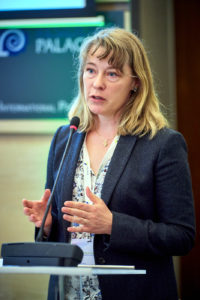 2) The Horizon 2020-funded project ENABLE.EU looks at drivers of individual energy choices, such as the decision to become a prosumer. Karina Standal from CICERO presented the reasons behind becoming a prosumer. They are mainly of environmental and financial nature, and there is often a technological interest behind. While men tend to take the initiative, the decision is usually taken jointly by women and men within a household. The main motivations and best practices for becoming prosumers are:
2) The Horizon 2020-funded project ENABLE.EU looks at drivers of individual energy choices, such as the decision to become a prosumer. Karina Standal from CICERO presented the reasons behind becoming a prosumer. They are mainly of environmental and financial nature, and there is often a technological interest behind. While men tend to take the initiative, the decision is usually taken jointly by women and men within a household. The main motivations and best practices for becoming prosumers are:
- Knowledge: to make it easy to install, to find and understand information
- Attitudes: social norms, creating new habits due to the comfort created by technology
- Material conditions: income, regulations, bureaucracy, access to energy
- Beliefs/ values: environmental concerns, geopolitical situation
3) Ömer Ceylan, COO at Geonardo, presented the results of the Horizon 2020-funded project START2ACT, which targets energy consumers at their workplace and tries to unleash the energy and cost saving potentials of young SMEs and start-ups by introducing simple yet effective energy efficiency and behavioural change measures, such as:
- Ensuring that the thermostats are set correctly
- Managing effectively office equipment to optimise their energy consumption
- Switching off the office equipment and other appliances (e.g. computer monitors, coffee machine) when not in use
- Printing documents that are essential to have in hard copy and storing and reading all other documents electronically
- Turning off the lights when leaving a room that is unoccupied or installing occupancy sensors
- Investing in / encouraging the management to invest in energy efficient office equipment and appliances
- Encouraging colleagues to behave in an environmentally conscious way
The second part of the session brought together industry (Frances Williamson, Chameleon Technology), policy makers (Anna Colucci, Head of Unit Retail Markets, at DG Energy, European Commission), consumer protection authorities (Annette Jantzen, Secretary General, NEON Ombudsman) and researchers (Roxanne van Giesen, CentERdata) for a broader discussion on consumer engagement with real examples, moderated by Thomas Pellerin-Carlin, Jacques Delors Institute.
Anna Colucci highlighted the regulatory framework for engaging consumers – one of the three main pillars of the Clean Energy Package of legislation that was finalised this year is having consumers at the core of the energy system. This is the only way to enable flexibility and decarbonise Europe.
Annette Jantzen mentioned the roll-out of smart meters needs to be followed by direct benefits for consumers through, for example, an easy way to visualise their real-time consumption or specific tariff patterns. The messaging is also very important to get consumers on board: in addition to the monetary benefits which can be limited, long-term environmental benefits should be emphasized.
Frances Williamson reinforced the fact that just installing the smart meters won’t change anything: consumers need good explanations, tools to see their real-time energy consumption, as well as additional benefits in terms of services and savings.
Roxanne van Giesen talked about the need to overcome limited resources (time, money) and information for employees working for young SMEs and startups. Also, it is important to engage all sectors of society and target them based on their specific needs.
The conclusions brought forward by Thomas-Pellerin Carlin rounded up the presentations and discussions:
- We need to always keep in mind that individuals don’t “consume” energy, instead we cook, we travel, we work – activities that require energy;
- A system change is needed to actually engage consumers and get to an efficient energy system and this comes with 5 main changes: of technology, of infrastructure, of economic incentives, of habits and of social norms;
- Individual energy choices are deeply embedded in society’s energy choices.
